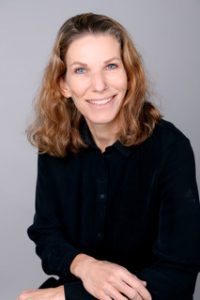5 Lilach Marom
Lilach Marom

Lilach Marom (she/her)
When doing critical and relational educational work, as this Pressbook aims to do, it is essential to position oneself. I want to weave my voice into the critical knowledge and reflections shared by Rachel.
I am a first-generation Jewish-Israeli immigrant to Canada, currently residing on Coast-Salish territories. When I first came to this land, I knew close to nothing about the history of this place. My motivation for immigration emerged from the ongoing land disputes and the occupation in my home country. I wanted my kids to grow in a safe and peaceful place, and Canada seemed to be just this.
I could have stayed in blissful ignorance, but I was lucky to take my graduate degree at the University of British Columbia. During this time, I’ve come to learn about the legacy of settler colonialism and asked myself ever since; what are my responsibilities as a new settler re-establishing my personal and professional life on this land?
The answer, of course, is not easy and is not final; it is an ongoing process of learning and unlearning. What I have understood from an early stage is that I have to position myself, commit to doing, and establish relations and collaborations. As an educator, I cannot leave the reconciliation and decolonizing work to “Indigenous courses,” I need to weave it into my teaching.
I established a “finger rule” to myself that maintains that at any given moment, I will participate in a project that adds something, even if small, to the ongoing efforts of decolonizing and Indigenizing Western institutions. This project was done in collaboration with Rachel, Michelle, and Katelyn. The content in this Pressbook has emerged from the course EDUC 4210: Best Educational Practices of Spring 2021, and aids in Indigenizing the curriculum.
In one of the assignments in the above course, students were asked to choose and analyze an Indigenous learning resource. The goal was to help students, many of whom are aspiring educators, to navigate and identify teaching resources and engage in deeper learning. Rachel had generously agreed to “e-visit” the course and share her knowledge, guidelines, and resources with the students.
While grading the resources, we thought that, with some work, these assignments could be helpful in the wider KPU community. We are grateful for the President’s Diversity and Equity Committee (PDEC) grant that allowed us to hire two student assistants who were participants in my course for the curation and production of this book; this project could not have been done without them.
– Lilach

